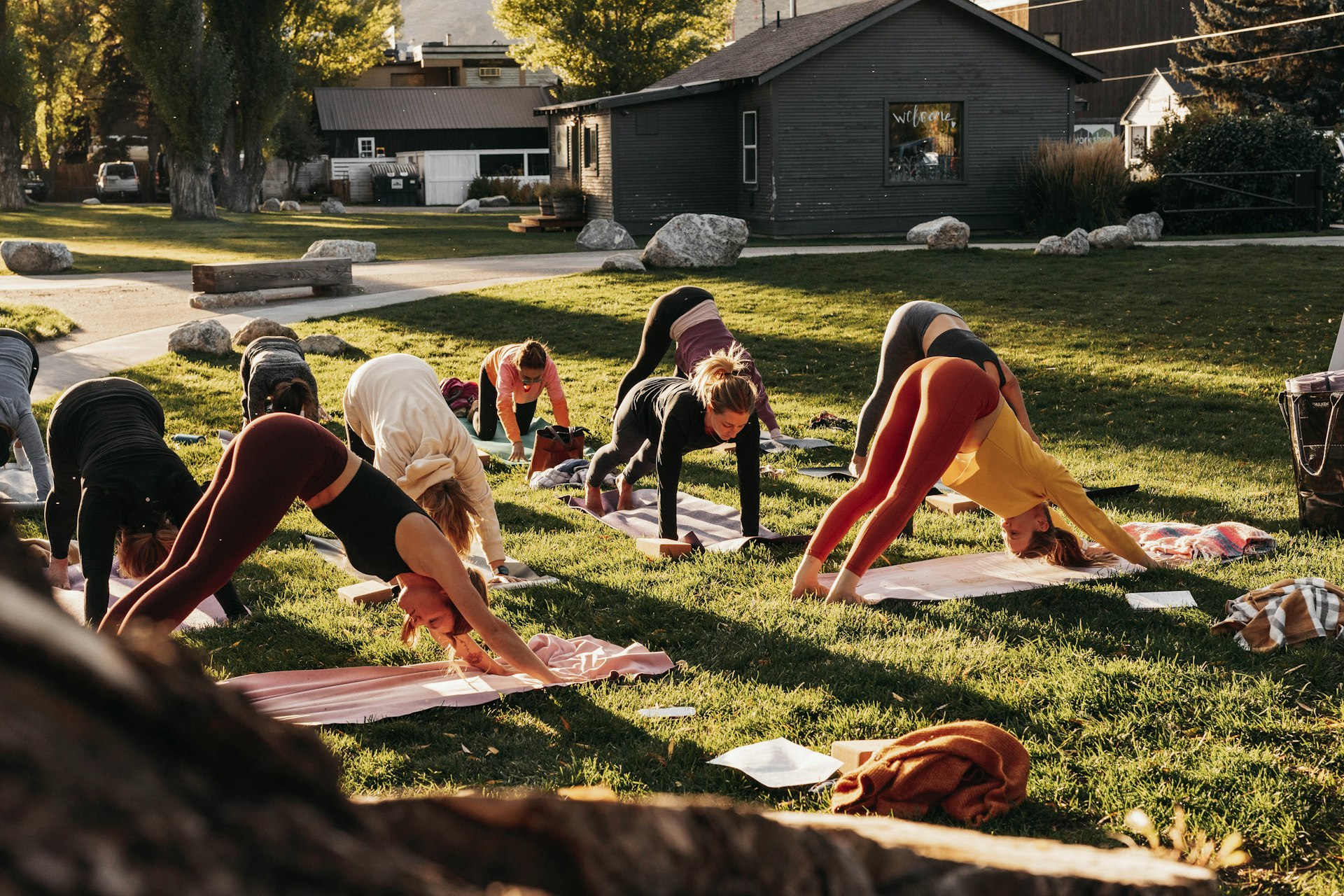Understanding Lifestyle Clubs: Community, Connection, and Personal Growth

Photo by Chaybabii with luv on Unsplash
Introduction to Lifestyle Clubs
Lifestyle clubs have grown in popularity as modern, community-driven spaces where adults can connect, socialize, and explore boundaries beyond traditional relationships. While the concept may evoke a sense of mystery, these clubs primarily focus on fostering authentic human connection and personal growth in a secure, judgment-free environment. This article will provide a comprehensive look into what lifestyle clubs are, their core values, membership processes, and how you can get involved through safe and actionable steps.
Defining Lifestyle Clubs
At their core, lifestyle clubs are private membership venues where individuals and couples gather to socialize, form meaningful friendships, and, in some cases, explore alternative relationship dynamics. These clubs are often misunderstood due to stereotypes, but the modern lifestyle club prioritizes openness, respect, and consent above all else. Community-building is central: members share a commitment to creating a supportive, inclusive environment where everyone can be themselves without fear of judgment [1] .
There are generally two main types of lifestyle clubs:
- On-premise clubs – These venues offer all experiences under one roof. Members can enjoy social lounges, dance floors, bars, and, where permitted, private spaces for more intimate interactions. The choice of how to participate always rests with the individual or couple.
- Off-premise clubs – These clubs focus on the social aspect, such as themed events, dinners, or meetups, with any deeper connections happening outside the club. Many members value these for the friendships and community they foster, even without pursuing more intimate experiences [1] .
The Core Values of Lifestyle Clubs
Most lifestyle clubs share a commitment to several fundamental principles:
- Consent and Safety: Every activity in a lifestyle club is guided by explicit consent. Clubs establish clear policies and vetting processes to ensure all members understand and honor these boundaries [1] .
- Discretion and Privacy: To protect their members, clubs maintain high standards of discretion. Many clubs require confidentiality agreements and do not permit photography inside the venue.
- Inclusivity: Lifestyle clubs welcome individuals and couples from various backgrounds, professions, and orientations. The primary requirement is a mutual respect for the diverse community [2] .
- Community and Connection: Many members join lifestyle clubs not just for potential intimacy but for the sense of belonging and genuine friendships they develop [1] .
Membership and Vetting Process
Unlike standard social venues, lifestyle clubs typically have a thorough membership process. This may include:
- Application: Prospective members fill out an online or in-person application, often including questions about their interests, values, and reasons for joining.
- Screening: Clubs may conduct interviews or background checks to ensure applicants align with the community’s standards of respect and discretion [1] .
- Orientation: New members often attend an orientation session to review club rules, etiquette, and safety protocols.
- Membership Fees: Most clubs require annual or monthly fees to maintain the facility and support exclusive programming. Pricing varies but typically reflects the amenities and services offered. It is advisable to contact specific clubs for current rates and offerings, as pricing is not standardized or publicly listed for all clubs.
Club Amenities and Events
Lifestyle clubs offer a variety of amenities designed to provide comfort and foster a sense of community. These may include:
- Social lounges and bars for relaxed conversation
- Dance floors and entertainment spaces
- Themed rooms or event spaces for special occasions
- Upscale amenities such as pools, hot tubs, spas, or fitness areas
- Private areas for members who wish to explore further connections
Events at lifestyle clubs are diverse, ranging from casual meet-and-greets to elaborate themed parties. Many clubs also host educational workshops on topics such as consent, communication, and relationship dynamics, as well as guest speaker sessions on art, wellness, or innovation [2] . These offerings help members develop new skills and deepen their connections.
Accessing Lifestyle Clubs
If you’re interested in joining a lifestyle club, here are the typical steps you can follow:
- Research Local Options: Start by searching for “lifestyle clubs near me” along with your city or region. Look for established clubs with positive reviews and transparent membership policies. Notable examples like Miami Velvet or Trapeze Club operate in major cities and have accessible websites with detailed information [2] .
- Review Club Requirements: Each club will have its own application and vetting process. Carefully read their guidelines, code of conduct, and privacy policies before applying.
- Complete the Application: Follow the club’s instructions for submitting your application. This may include providing personal information and agreeing to a background check or interview.
- Attend an Orientation: Many clubs require new members to participate in an orientation session to familiarize themselves with club rules and culture.
- Engage Respectfully: Once accepted, participate in club events and activities that align with your interests. Always adhere to the principles of consent, safety, and respect.
For those who prefer to explore communities virtually before visiting in person, platforms like Swing Social offer online directories and event calendars dedicated to lifestyle clubs and alternative relationship communities [1] .
Benefits of Joining a Lifestyle Club
Membership in a lifestyle club can offer several unique benefits:
- Building Genuine Connections: These clubs provide opportunities to meet like-minded people in a supportive environment.
- Personal Growth: Members often discover new interests, perspectives, and aspects of themselves through club activities and relationships.
- Safe Exploration: The emphasis on consent and safety allows members to explore new social or relationship dynamics without fear of judgment or harm.
- Exclusive Experiences: Access to high-quality amenities, curated events, and educational opportunities sets lifestyle clubs apart from conventional social venues.
It is important to note that while physical intimacy may be part of some clubs’ offerings, many members value the sense of belonging and authentic friendship above all else [1] .

Photo by Mike Jumapao on Unsplash
Potential Challenges and How to Navigate Them
While lifestyle clubs offer many benefits, there are also considerations to keep in mind:
- Membership Exclusivity: Some clubs maintain strict vetting processes, which may make entry challenging for newcomers. Persistence and respectful engagement are key.
- Misconceptions: The term “lifestyle club” is sometimes misunderstood. Being clear about your intentions and learning about the community can help address potential stigma.
- Privacy Concerns: As with any private membership group, ensure that the club you choose has strong privacy and confidentiality policies to protect your identity and information.
If you encounter barriers, consider reaching out to clubs for clarification or seeking recommendations from trusted peers who are already members. Online communities and forums dedicated to lifestyle clubs can also provide support and advice.
Alternative Approaches and Related Options
If a traditional lifestyle club isn’t the right fit, there are related options to explore:
- Social Clubs: Many cities have social clubs focused on shared interests such as arts, travel, wellness, or entrepreneurship. These offer a less exclusive avenue for making connections and exploring new activities [3] .
- Online Forums and Groups: Virtual communities allow you to engage with like-minded individuals, attend online events, and learn about club culture before joining in person.
- Special Interest Events: Workshops, retreats, or themed parties hosted by independent organizers can introduce you to the lifestyle community without immediate commitment to club membership.
Always research hosts and event policies thoroughly, and prioritize safety and respect in every interaction.
Key Takeaways
Lifestyle clubs provide unique spaces for adults to connect, explore, and grow within a framework of respect, safety, and community. While each club has its own flavor and focus, all share a commitment to creating inclusive, judgment-free environments where members can be themselves. If you are interested in exploring a lifestyle club, take the time to research local options, understand their values, and approach the experience with openness and respect. This journey can lead to lasting friendships, personal discovery, and a richer social life.
References
MORE FROM yourscholarshiptoday.com













